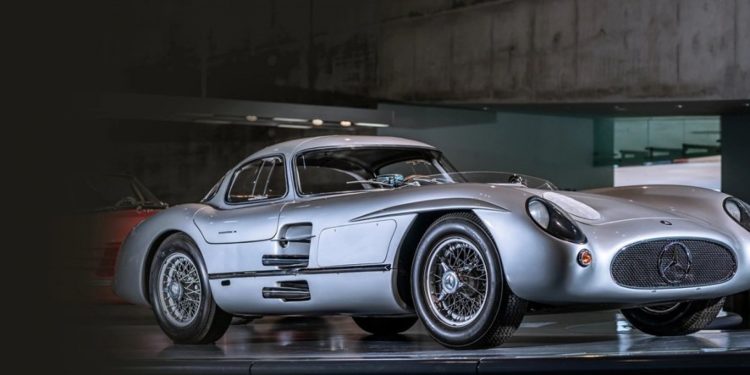Introduction: Defining the Balance Between Luxury and Performance
The debate between luxury and performance has always been central to the sports car industry. Sports cars often represent a balance between thrilling driving experiences and luxurious features. As the automotive market evolves, many car manufacturers are striving to offer both high performance and sophisticated comfort in their vehicles. However, buyers still face the question of which is more important: the pure adrenaline rush of performance or the smooth and refined experience of luxury.
This article will explore the factors that define a sports car’s value, highlighting its performance characteristics, luxury features, and overall worth. By examining the key elements of a particular sports car, we will determine whether the investment is justified and if the car effectively blends the two aspects that make it an appealing option for consumers.
1. The Essence of a Sports Car: What Makes a Car ‘Sporty’?
Performance is often the first characteristic that comes to mind when one thinks of a sports car. However, there is more to being a “sports car” than just raw speed.
- Power and Speed: The heart of any sports car lies in its engine, its acceleration, and its top speed. Whether it’s a high-revving V8 or a turbocharged inline-4, the engine choice influences how a car handles on the road. The 0-60 mph time and top speed remain key metrics for measuring sports car performance.
- Handling: A true sports car excels in handling, with sharp steering response, low center of gravity, and agile suspension. A well-tuned suspension system ensures the car stays planted even at high speeds or in tight corners.
- Design and Aerodynamics: The design of a sports car is more than just aesthetics—it plays a vital role in enhancing its performance. From its lightweight body to its aerodynamic features, every design element aims to improve speed, stability, and driving pleasure.
2. Luxury in a Sports Car: What Constitutes Luxury?
While performance is central, the luxury element in a sports car is also incredibly important. A car that delivers on both counts must offer a premium driving experience without sacrificing comfort or convenience.
- Interior Features and Materials: The interior of a luxury sports car is a reflection of its price tag. High-quality materials like leather, alcantara, and wood trim create an environment that exudes sophistication. Whether it’s a soft-touch dashboard or the finest detailing on the upholstery, luxury sports cars prioritize aesthetics and comfort.
- Technology and Comfort: Infotainment systems, high-end sound systems, adaptive cruise control, and ambient lighting add layers of convenience and enjoyment. Many luxury sports cars come equipped with advanced driver-assistance systems (ADAS), which provide both safety and convenience during long drives.
- Craftsmanship and Design: The craftsmanship and attention to detail distinguish the best luxury sports cars from the rest. Customization options, bespoke interiors, and exclusive finishes give buyers a sense of individuality.
3. Performance and Technology: What Makes a Sports Car Perform at Its Best?
Performance-focused technology is one of the driving forces behind the evolution of sports cars. While engines remain the focal point, other technologies such as suspension systems, braking systems, and tire technologies contribute significantly to overall performance.
- Powertrains and Engine Types: Modern sports cars now offer a range of powertrains, from traditional gasoline engines to hybrid and electric configurations. Each has its own advantages, from the raw power of a V12 engine to the instant torque of an electric motor. Hybrid powertrains are becoming increasingly popular, offering both performance and efficiency, with the added benefit of reduced emissions.
- Handling and Suspension: The suspension system is key to maintaining control while pushing a car to its limits. Adjustable dampers, active suspension management, and even air suspension systems are used in sports cars to optimize handling and ride comfort.
- Braking and Cornering: High-performance braking systems—such as carbon-ceramic brakes—are essential for maintaining high levels of safety and control. The ability to corner at high speeds without losing traction is what separates the best sports cars from the rest.

4. The Luxury Factor: How Comfort and Convenience Play a Role in a Sports Car
While performance is the primary draw, luxury features often help differentiate one sports car from another. A truly luxurious experience involves more than just raw speed—it also incorporates comfort, convenience, and exclusive features.
- Riding Comfort vs. Performance Focus: Many sports cars prioritize driving excitement over comfort, but top-tier luxury sports cars achieve the best of both worlds. For example, adjustable seating, noise insulation, and refined climate controls ensure a comfortable ride, even at high speeds.
- Exclusive Features for the Discerning Buyer: High-end features like massage seats, advanced air filtration, and customizable interior finishes take the luxury experience to the next level. Such features ensure that the car is not just a vehicle, but a sanctuary for its occupants.
- Prestige and Brand Value: Often, the brand name itself is synonymous with luxury. Buyers are not just purchasing a car—they’re acquiring a piece of exclusivity and status. Brands like Ferrari, Lamborghini, and Porsche have a strong reputation for delivering both performance and prestige.
5. Value for Money: Is the Price Justified?
One of the most crucial aspects of purchasing a sports car is determining if the price is justified. Luxury sports cars come with a hefty price tag, so it’s important to weigh the cost against the features offered.
- Comparing Price to Features: Is the car worth the premium for its features? When considering a sports car purchase, buyers must evaluate whether the luxury elements—such as high-end interior materials, advanced technology, and comfort features—are balanced with the car’s performance.
- Depreciation and Long-Term Costs: Many sports cars depreciate at a faster rate than mainstream vehicles. The long-term value is something that buyers should carefully consider, as some brands tend to retain their value better than others.
- Financing and Maintenance: Sports cars can be expensive not only to purchase but to maintain. Factor in ongoing maintenance costs, insurance, and fuel consumption. Some luxury sports cars may have higher service and repair costs due to the specialized parts and technology they use.
6. Consumer Perception and Brand Value
When it comes to luxury sports cars, consumer perception plays a major role. Brands are often judged not just by the performance of their cars but by their overall reputation, history, and the experience they offer.
- Consumer Reviews and Satisfaction: Collecting consumer feedback on the car’s driving experience, luxury features, and overall satisfaction can offer valuable insight into whether the car truly lives up to expectations.
- Brand Perception: Many buyers are influenced by the brand’s reputation. Well-established brands like Porsche and Ferrari often carry more weight in the marketplace, attracting consumers who want to showcase their success and appreciation for quality.
7. The Future of Luxury and Performance in Sports Cars
The future of luxury sports cars is evolving, with electric vehicles (EVs) and hybrid systems becoming more common. The question remains: how will luxury and performance be defined in the future?
- Electric and Hybrid Technology: The rise of electric vehicles like the Porsche Taycan is reshaping the sports car landscape. EVs provide instant torque and performance benefits, and many luxury brands are embracing this shift with electric versions of their sports cars.
- Autonomous Driving and AI: While autonomous driving remains a futuristic concept, it is likely that future luxury sports cars will integrate some level of autonomy. Balancing high performance with intelligent systems will be essential to maintaining the driving experience.
8. Conclusion: Should You Buy It?
After considering the balance between luxury and performance, and evaluating the value for money, you can make an informed decision about whether a particular sports car is worth purchasing. Whether you prioritize the thrill of driving or the comfort and prestige of owning a high-end vehicle, it’s essential to weigh the car’s features, performance, and brand reputation.
The decision to invest in a luxury sports car is deeply personal, but with the right research and understanding, it can be an incredibly rewarding one.


































Discussion about this post